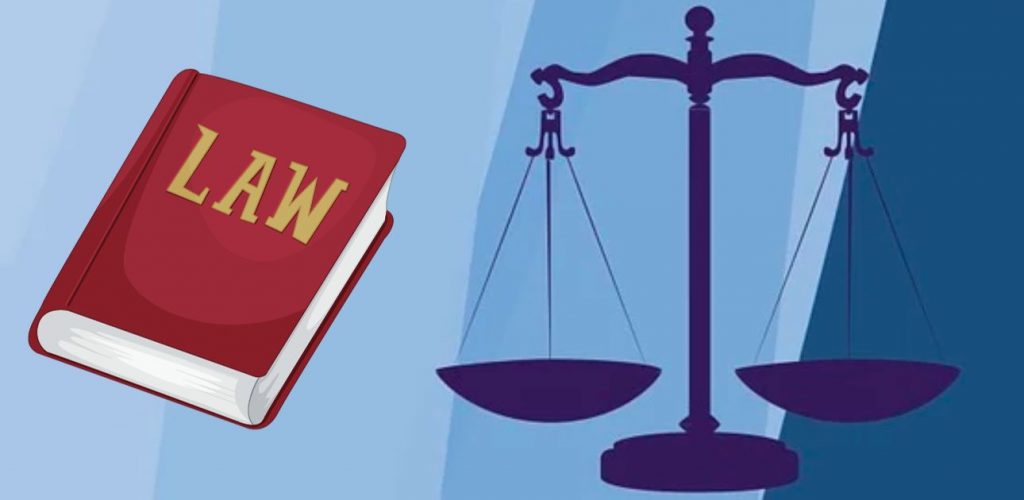Commercial law plays a crucial role in the success of any business. It encompasses a wide range of legal principles that govern various aspects of businesses, from contracts and intellectual property to dispute resolution. Understanding the basics of commercial law is essential for every business owner to ensure compliance and protect their interests.
Understanding the Basics of Commercial Law
Commercial law, also known as business law, refers to the body of legal rules and regulations that govern the rights, relations, and conduct of individuals and businesses engaged in trade, commerce, and sales activities. It establishes the legal framework for conducting business transactions and provides a set of rules that businesses must adhere to.
At its core, commercial law encompasses a broad range of legal areas, including contract law, intellectual property law, consumer protection law, and corporate law. These areas work in harmony to regulate the rights and obligations of businesses and individuals involved in commercial transactions.
The importance of commercial law cannot be understated. It provides a predictable and stable legal framework that enables businesses to operate efficiently, make informed decisions, and protect their rights. By understanding commercial law, business owners can ensure compliance with legal requirements, mitigate risks, and resolve disputes effectively.
Definition and Importance of Commercial Law
Contract law, a significant component of commercial law, governs the formation and enforcement of contracts. It ensures that parties involved in a business transaction have a clear understanding of their rights and obligations. Intellectual property law protects the creations of the human mind, such as inventions, trademarks, and copyrights, fostering innovation and encouraging businesses to invest in research and development. Learn more about trademarks at https://trademarks.usc.edu/trademark-fundamentals/
Consumer protection law plays a crucial role in safeguarding the interests of consumers and ensuring fair and ethical business practices. It establishes rules and regulations that businesses must follow to protect consumers from fraudulent or deceptive practices. Corporate law, on the other hand, governs the formation, operation, and dissolution of corporations, providing a legal framework for businesses to organize and conduct their affairs.

Key Principles of Commercial Law
Commercial law is guided by several key principles that form the foundation of its application. These principles include contractual freedom, which allows parties to freely negotiate and enter into contracts that suit their needs. Good faith and fair dealing require parties to act honestly and fairly in their business dealings, ensuring a level playing field for all involved. Click here to learn more about good faith.
Buyer’s rights and remedies protect consumers from defective or substandard products and provide avenues for recourse in case of breach of contract. Legal remedies for breach of contract, such as damages or specific performance, aim to compensate the injured party and restore them to the position they would have been in had the breach not occurred.
Understanding these principles is crucial for businesses to navigate the legal landscape and avoid legal disputes and liabilities. By adhering to these principles, businesses can build trust, foster positive relationships, and contribute to a healthy and vibrant commercial environment.
The Scope of Commercial Law
The scope of commercial law is vast, covering a wide range of legal areas that impact businesses on a daily basis. Familiarizing yourself with these areas can help you identify potential legal issues and take proactive measures to protect your business.
Areas Covered Under Commercial Law
Commercial law encompasses various areas such as contract law, which governs the formation, interpretation, and enforceability of contracts between parties. This includes not only the written contracts but also the implied ones, ensuring that both parties are aware of their rights and obligations. Intellectual property law is another crucial aspect of commercial law, protecting the creations of the mind, such as patents, trademarks, and copyrights. These protections allow businesses to safeguard their innovations and unique branding, giving them a competitive edge in the market.
Consumer protection law ensures fair practices in business-consumer transactions, safeguarding the rights of consumers and promoting trust in the marketplace. This includes regulations on advertising, product safety, and fair pricing. Corporate law, on the other hand, regulates the formation and governance of corporations, providing a framework for their structure, management, and accountability. It covers areas such as shareholder rights, board of directors’ responsibilities, and corporate governance practices.
Other areas covered under commercial law include competition law, employment law, international trade law, and securities law. Competition law aims to prevent anti-competitive practices and promote fair competition in the market. Employment law governs the relationship between employers and employees, ensuring fair treatment, non-discrimination, and safe working conditions. International trade law is essential for businesses engaged in cross-border transactions, providing rules and regulations to facilitate global trade. Securities law focuses on the regulation of financial markets and investments, protecting investors and maintaining the integrity of the market.
How Commercial Law Impacts Businesses
Commercial law has a significant impact on businesses, shaping their operations and interactions with customers, suppliers, and partners. Compliance with commercial law is essential to avoid legal risks and maintain a positive reputation in the marketplace.
Businesses must understand how commercial law affects their day-to-day activities, such as drafting and enforcing contracts. This includes ensuring that contracts are clear, comprehensive, and legally binding, protecting the interests of all parties involved. Moreover, businesses need to be aware of the importance of protecting their intellectual property, as it is often a valuable asset that sets them apart from competitors.
Furthermore, understanding competition law is crucial for businesses to ensure that they are engaging in fair practices and not engaging in anti-competitive behavior. This includes avoiding practices such as price-fixing, market allocation, and abuse of dominant market position. Resolving disputes in accordance with commercial law is also essential, as it provides a framework for fair and efficient resolution, whether through negotiation, mediation, or litigation.
Failure to comply with commercial law can lead to legal consequences, including financial penalties, reputational damage, and litigation. It is, therefore, essential for businesses to stay informed about the ever-evolving landscape of commercial law and seek legal advice when needed to navigate the complexities of the legal framework.

Navigating Commercial Contracts
Contracts are an integral part of commercial law and serve as the foundation for business relationships and transactions. Understanding the essential elements of commercial contracts and being aware of common issues in contract law is vital for business owners.
When delving into the world of commercial contracts, it’s crucial to recognize that these legal agreements come in various forms, from simple purchase orders to complex partnership agreements. Each type of contract requires a tailored approach to ensure that all parties involved are protected and their interests are safeguarded.
Essential Elements of Commercial Contracts
Commercial contracts typically include key elements such as offer and acceptance, consideration, intention to create legal relations, and certainty of terms. These elements help establish a clear understanding between parties and ensure the enforceability of the contract.
Moreover, beyond the basic elements, commercial contracts often involve intricate clauses related to confidentiality, dispute resolution mechanisms, and indemnity provisions. These additional clauses serve to provide further clarity and protection for the parties involved, outlining their rights and obligations in specific scenarios.
By paying attention to these elements, business owners can avoid potential disputes and ensure that their contracts accurately reflect their intentions.
Common Issues in Contract Law
Contract law is not without its challenges and complexities. Business owners need to be aware of common issues that may arise, such as contract breaches, ambiguous terms, misrepresentation, and mistake. By being proactive and seeking legal advice when necessary, businesses can mitigate the risks associated with contract-related disputes.
Furthermore, in today’s globalized business environment, cross-border contracts present additional hurdles, including differing legal systems, languages, and cultural norms. Navigating these complexities requires a nuanced understanding of international contract law and may involve the use of specialized legal counsel to ensure compliance with relevant regulations.
Intellectual Property in Commercial Law
Intellectual property rights play a crucial role in today’s knowledge-based economy. Understanding the importance of intellectual property and the different types of protections available is essential for businesses to safeguard their innovations and creations.
In the dynamic landscape of commercial law, intellectual property rights have become increasingly significant. The ability to protect intangible assets such as inventions, designs, brands, and creative works has transformed into a strategic necessity for businesses aiming to thrive in the competitive market.
Importance of Intellectual Property Rights
Intellectual property rights protect intangible assets such as inventions, designs, brands, and creative works. Securing these rights is crucial for businesses to establish a competitive edge, prevent unauthorized use or copying, and capitalize on their intellectual creations.
Moreover, intellectual property rights not only serve as a shield against infringement but also as a valuable currency in the realm of business transactions. Companies often leverage their intellectual property portfolios to attract investors, secure partnerships, and enhance their market position.
Understanding Patents, Trademarks, and Copyrights
Patents, trademarks, and copyrights are the main types of intellectual property protections available to businesses. Patents protect inventions, trademarks protect brands and logos, and copyrights protect original creative works such as music, literature, and software.
Each form of intellectual property protection comes with its own set of rules and requirements. For instance, obtaining a patent involves disclosing the technical details of an invention in a patent application, while registering a trademark requires demonstrating the distinctiveness of a brand in the marketplace. Understanding these nuances is essential for businesses to navigate the complex landscape of intellectual property law effectively.
By understanding these different forms of intellectual property protection, business owners can take the necessary steps to register and enforce their rights, effectively safeguarding their valuable assets.
Dispute Resolution in Commercial Law
Disputes are an inevitable part of doing business. Understanding the different methods of dispute resolution and their pros and cons can help business owners navigate conflicts effectively and minimize the impact on their operations.
Litigation vs. Arbitration: What’s the Difference?
Litigation involves resolving disputes through the court system, where a judge or jury renders a decision. Arbitration, on the other hand, is a private and less formal process where an impartial third-party arbitrator makes a binding decision. Business owners should carefully consider the advantages and disadvantages of each method before choosing the most suitable approach for their particular dispute.
The Role of Mediation in Resolving Business Disputes
Mediation is a voluntary and informal method of dispute resolution that involves a neutral mediator assisting the parties in reaching a mutually acceptable agreement. Mediation can be an effective alternative to litigation, as it allows parties to maintain control over the outcome and potentially preserve business relationships.
As businesses continue to face commercial disputes, understanding the role of mediation and exploring this option can lead to more efficient and cost-effective resolutions.In conclusion, commercial law is a complex and essential aspect of running a business. Familiarizing yourself with the fundamentals of commercial law, including contract law, intellectual property rights, and dispute resolution methods, can help protect your business interests and ensure compliance with legal requirements. By understanding and strategically applying commercial law principles, business owners can make informed decisions and navigate the legal landscape with confidence. Learn more about Melbourne Conveyancers on https://wallerlawblog.com/melbourne-conveyancers-what-to-look-for-in-a-trusted-professional/









